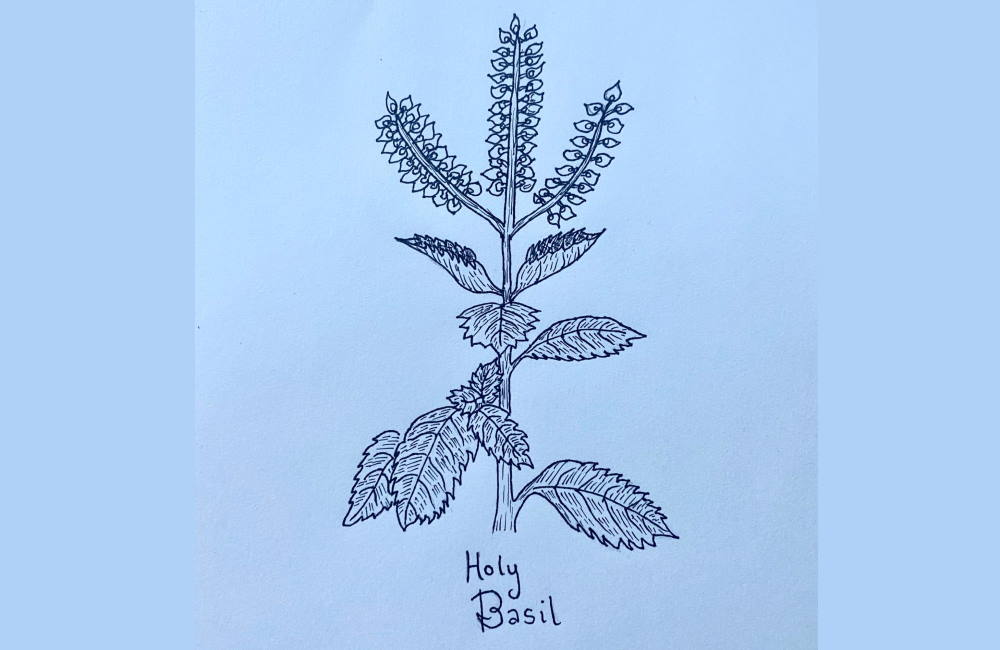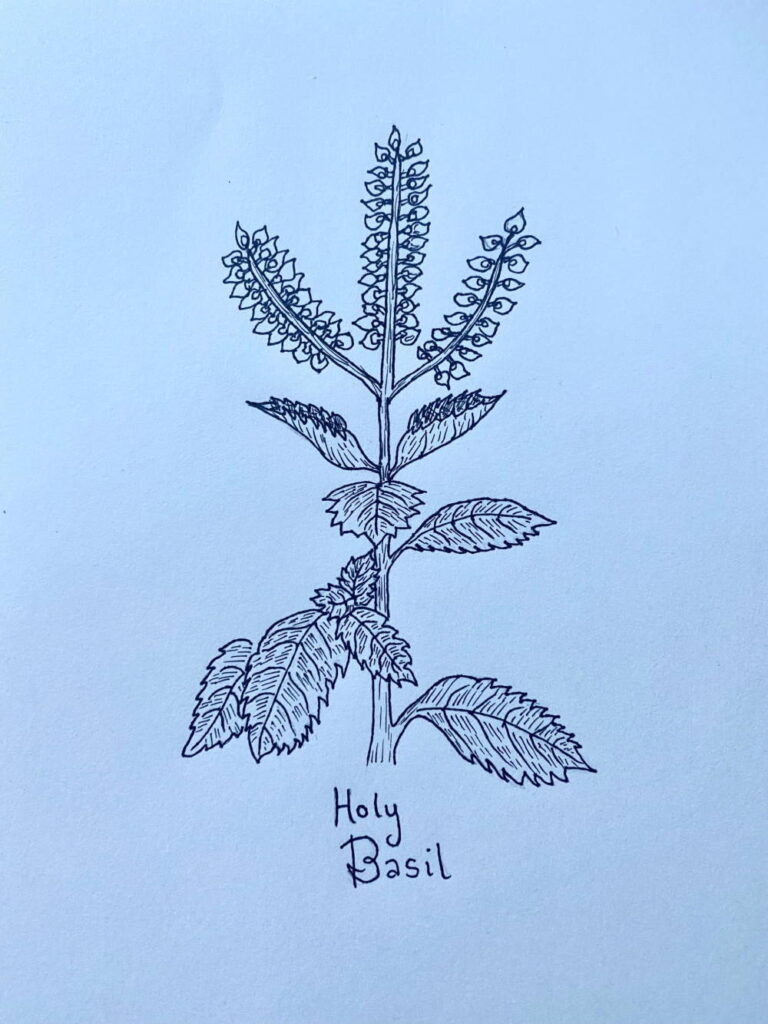Botanicals of the Month


Botanicals of the Month
Good Wishes – Botanicals of the Month – Part of the January Simple Suggestions
The year 2022 brings a new theme, Movement, along with a different focus for each month. January’s focus is Good Wishes, and while Lisa Story, founder of Hope Grows shares a blog article every month about each month’s focus, I, Jessica, the Hope Grows horticulturist, will be sharing thoughts about the Botanical Pick 3’s every month.
In support of the month’s focus, the botanicals include a plant/flower, essential oil and tea. This year our focus is on healing plants and I will explore the characteristics of the plant, medicinal and therapeutic uses, and any significant meaning or mythology associated with it. January’s healing herb is holy basil, a.k.a. Tulsi, the doTerra essential oil Holy Basil, and the Rishi tea, Tulsi Ginger.
Tulsi, holy basil’s Sanskrit name, actually translates to “The Incomparable One,” and after reading about everything it’s good for, I can see why. It’s also known as “The Queen of Herbs” and “Mother Medicine of Nature.” Not to be confused with the ever-popular sweet basil that is so tasty on pizza or in pesto, holy basil is a different plant entirely, used more for its medicinal attributes than for cooking. It’s actually sometimes referred to as “hot basil,” for its peppery taste.
Native to Southeast Asia, holy basil is a bushy shrub which grows to about 18 inches. There are at least 5 different varieties, the most common of which are often referred to as “green leaf Tulsi” and “purple leaf Tulsi.” In this blog article, I will be referring to the green leaf Tulsi. The leaves are actually much smaller than those of sweet basil, and fuzzy. It’s a member of the mint family (Lamiaceae), bears small lavender flowers and rust colored nuts. The aroma, however, is very unique and makes me very happy. It’s similar to clove, combined with a strong tinge of licorice and hints of citrus and mint.
Revered in Ayurvedic traditions as an “Elixir of Life” for its medical and spiritual properties, the Tulsi plant is regarded as a tonic for the mind, body and spirit. Holy basil is actually one of the cornerstones in the Ayurvedic medicinal tradition as it is considered an adaptogen, which is something that helps the human body adapt to stress. Known for its calming effect, Tulsi facilitates the body’s return to a more balanced state by decreasing the stress hormone cortisol and improving the adrenal system, which is responsible for the body’s hormonal reaction to stress.
It doesn’t stop there. Holy basil is known for its anxiolytic, anti-depressant, anti-inflammatory, and antimicrobial properties as well as for boosting antioxidant activity. It can also have a normalizing effect on blood pressure, glucose and lipids. Among the medical conditions it is said to help: depression, anxiety, skin problems, asthma, fever, headache, heart disease, inflammation, kidney stones, lung disease, respiratory disorders. It even is known to have a purifying effect in the environment. Hundreds of thousands of Tulsi plants are planted around the Taj Mahal to help protect the marble from environmental pollution damage.
In the Victorian era lore of herbs and flowers, basil represents good wishes. If it were possible to bottle and sell good wishes, stores would never be able to keep them in stock. Genuine good wishes come like a gentle blessing, bestowed with grace and received with gratitude. So, if you receive a basil plant from someone, consider it a more than just a topping for your next pizza. If you can, I would plant it. It symbolizes the giver’s care for your happiness and well-being, and that can’t be bought.
In other areas of the world, the Greek Orthodox tradition has used holy basil to make holy water and bless church altars throughout eastern Europe, while traditional Chinese medicine uses it for a tonic called “Shen Tonic” to nurture the spirit. With that in mind, the Ginger Tulsi tea we have chosen this month is a blend that brings together healing herbs from both Ayurvedic and traditional Chinese medicine. The ingredients are: organic ginger root, organic tulsi, organic licorice root, organic astragalus root, essential oil of ginger, and organic essential oil of geranium.
After learning all about this incredible herb, I immediately wanted some in the Hope Grows Healing Gardens. Holy basil will be a new addition to the herb beds this year and actually promises to be a great pollinator plant. I am leaving the tea making to others, but I would encourage you to stop by this summer and take a whiff of its unique scent. I would be curious to hear how others describe it, and, of course, to see if it makes you as happy as it made me.
-Jessica Giannotta, Hope Grows Horticulturist
